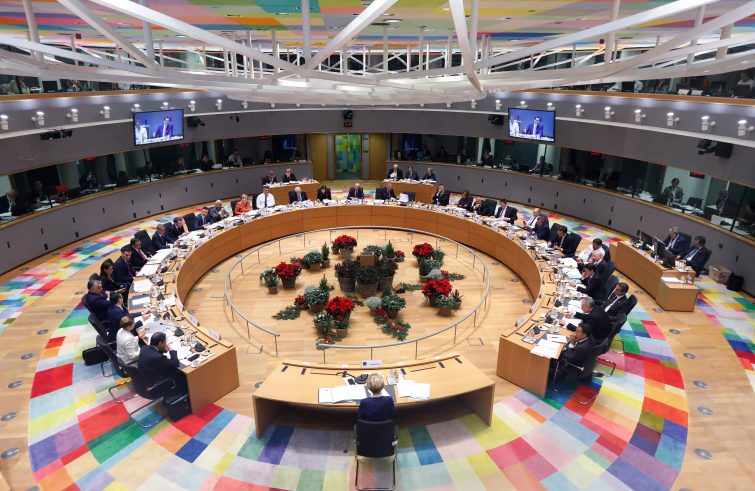
“The COVID-19 pandemic has claimed many lives across Europe and dealt a serious blow to our economies and societies. It continues to impact our lives”, declared Charles Michel, President of the European Council, in a letter of invitation sent to EU-27 Heads of State and Government who gathered for an “in-person” meeting in Brussels today – for the first time since the lockdown – to discuss the European response to the crisis caused by Covid-19. “All our efforts must focus on building a sustainable recovery. To that end, our meeting this week will be dedicated to the Multiannual Financial Framework and the Recovery Plan.” In Michel’s intentions, the summit, which could continue tomorrow, is expected to establish the scale of the EU’s long-term budget for the period 2021-2027 and the related amount of the recovery plan that the President of the Commission, Ursula von der Leyen, has emphatically renamed Next Generation EU.
Pending proposals are clear (MFF totalling € 1,074 billion; Recovery Plan € 750 billion, including € 500 billion consisting of grants and € 250 billion in loans), although not definitive, as EU Governments have so far failed to reach an agreement, while Parliament and the European Commission are calling for generous decisions in terms of amounts, and urgent in terms of timing. “There is no time to waste”, Von der Leyen and David Sassoli, EP President, repeated several times over the past few weeks.
Each Member Country requiring financial aid is asked to prepare “national recovery and resilience plans for 2021-2023.” Secondly, “30% of funding will target climate-related projects.” The third conditionality proposed by President Michel is linked to the rule of law and European values.
“We are taking a key step to anchor the rule of law and values in our European project – said the Belgian politician – and this is why I propose a strong link between funding and respect for governance and rule of law.”
So which issues must be resolved during this very delicate European Council to ensure that the long-awaited European response will be effective?
The first issue is the need to act soon. The health crisis is not over, on the contrary. In the meantime, serious repercussions of the financial and job crisis are being felt, with GDP in free fall, companies risking not reopening and labour markets in extreme distress.
Every decision linked to the Recovery Plan must be swiftly implemented.
The time factor had weighed on the 2008 crisis, so hopefully that lesson has been learned. Also because months could pass from the political and institutional green light to the Recovery Plan and its practical implementation in support of national economies. But workers, families, businesses and markets, cannot wait.
The second challenge is linked to the scale of interventions for sustainable recovery. An MFF amounting to just over one thousand billion Euros is for ordinary times, not for an exceptional season. A €750 billion Recovery Plan, covering three years and spread over 27 countries, is not exactly a “bazooka”, as it has been (improperly) defined.
The third hanging issue is of a political nature. And perhaps it is the hardest one to unravel.
In fact, it is necessary to verify whether, in the light of a pandemic that caused widespread death, recession and fraying social fabric, solidarity could return to be the cornerstone of the European construction process.
Some countries have been hit hardest by Covid and others were fortunately virtually spared; some have responded – in terms of precautions and treatment – more effectively to the spread of the disease and others more severely scarred by suffering and mourning; some economies are experiencing GDP contractions by around 5-6% while others, such as Italy, exceed 11%. In any case, Europe has had enough time to realize that “we are all on the same boat.” A cohesive and, indeed, supportive response appears to be the only way out of this new common challenge that the EU has to face.
Consequently, the so-called “frugality” shown by certain countries resembles selfishness, and some “sermons” by certain Nordic Premiers seem out of place. Albeit with different nuances, the leaders of Germany, France, Spain and Italy voiced positive messages towards a European response to the crisis. At this summit, Merkel and Macron, Sanchez and Conte, along with Michel and von der Leyen could make the difference.
The EU must prove that it is ready to establish a renewed economic, social and health alliance whereby European values based on mutual support are put into practice, giving priority to the needs of its citizens, especially those who, more than others, are paying the price for the pandemic. There are no credible alternatives.











